For anyone willing to relocate or invest abroad, safety remains one, if not the main pre-requisite when considering any location. Thanks to its long tradition of political and social stability, among other advantages, life in Mauritius offers a safe environment with an appealing lifestyle which has convinced world-wide expats.
A vibrant and stable nation
Although the country’s independence in 1968 did not appear promising due to the lack of natural resources, the young nation capitalised on its best assets, the exquisite tropical environment and the affordable workforce, to develop tourism, agriculture and textile industries. A success story which has positioned Mauritius as one of the leading developing countries in the African region despite its small size.
Known as a rainbow nation, the island is a melting pot of African, Asian and European cultures which has set the example of respectful and harmonious living. The government’s efforts to reduce inequalities and poverty is also reflected by the rare civil unrest and low crime rates, contributing to the peaceful environment appreciated by locals and visitors alike.
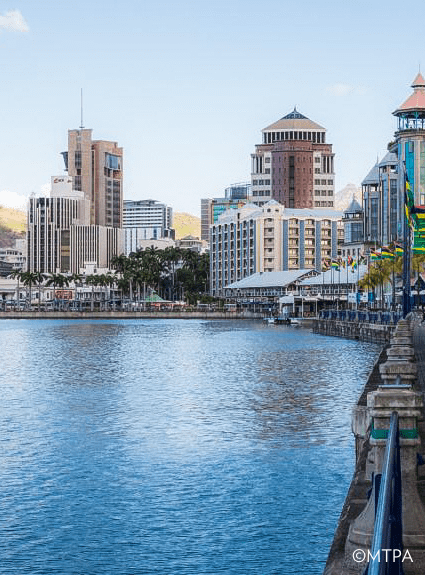
Tax advantages and economic stability
Despite the Covid-19 pandemic impact on Mauritius’ growth, the economy remained stable, nevertheless. Indeed, the government introduced a number of initiatives, and the economy is expected to rebound by the end of 2022, driven by construction, real estate and public investments, as well as a recovering tourism industry. In fact, the International Monetary Fund (IMF) forecasts a stable growth rate of 6.7% in Mauritius in 2022.
The country’s social, political and economic stability, hence, contribute to its positioning as a reference destination for holidays, investments and expatriation.
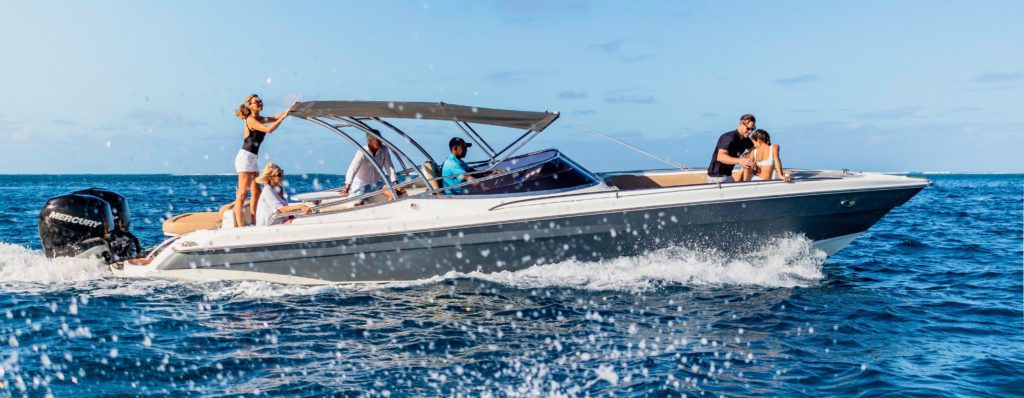
Favourable trade regulations and tax policies also attract many foreign investors. Mauritius is gradually becoming an offshore financial centre, the government’s aims being to make the country a financial hub for foreign and local investments, encouraged by low tax rates and exemptions: inheritance and dividends are not taxed, absence of capital gains tax and partial income tax exemption of 80% is applicable on certain type of income being sourced from abroad, such as dividends and interests. Generally, corporate income tax of 15% is applicable in Mauritius, as well as a personal income tax of 15% (a solidarity levy of 25% is applicable in certain cases for Mauritian tax residents)..
Living in Mauritius as an expat

Charmed by its tropical climate, lush nature, pristine beaches, and turquoise lagoons, many foreigners from all over the world chose to settle in Mauritius. The climate is pleasant throughout the year and there is a plethora of outdoor activities for the whole family from mountain hikes such as the UNESCO site Le Morne Brabant, lagoon activities and cruises.
The Mauritian people’s heritage and religion diversity has created an ecosystem that reflects the country’s multicultural richness to be discovered through festivals, gastronomy, and local architecture. In addition to the Mauritian Creole, the population speaks French as well as English, which helps with interacting and bonding with locals as language isn’t a barrier when relocating to Mauritius.

Families with children have a choice of primary and secondary schools offering French and English curriculums, and a number of tertiary educational institutions in Mauritius are affiliated to international universities.
On the health side, public healthcare facilities are free for all citizens and permanent residents. Private medical facilities are also available and offer a range of high-end services and treatments.
Buying a property in Mauritius: investing in the country’s booming industry
Another interesting aspect of relocating or investing in Mauritius is certainly the large range of accommodations which come at attractive prices depending on their location and size. Indeed, property acquisition remains one of the Mauritius’ key interests for foreign investors, who are allowed to purchase residential properties in Mauritius in specific real estate development such as the Integrated Resort Scheme (IRS), the Property Development Scheme (PDS) or Smart City Scheme. Through these schemes, foreigners may invest in luxury properties such as villas and apartments amid residential estates with amenities including swimming pools, spas, golf, restaurants, gym, tennis courts, among others. Upon investing at least USD 375,000 (or the equivalent in another currency), property owners and their immediate families are entitled to the Mauritius residence permit.
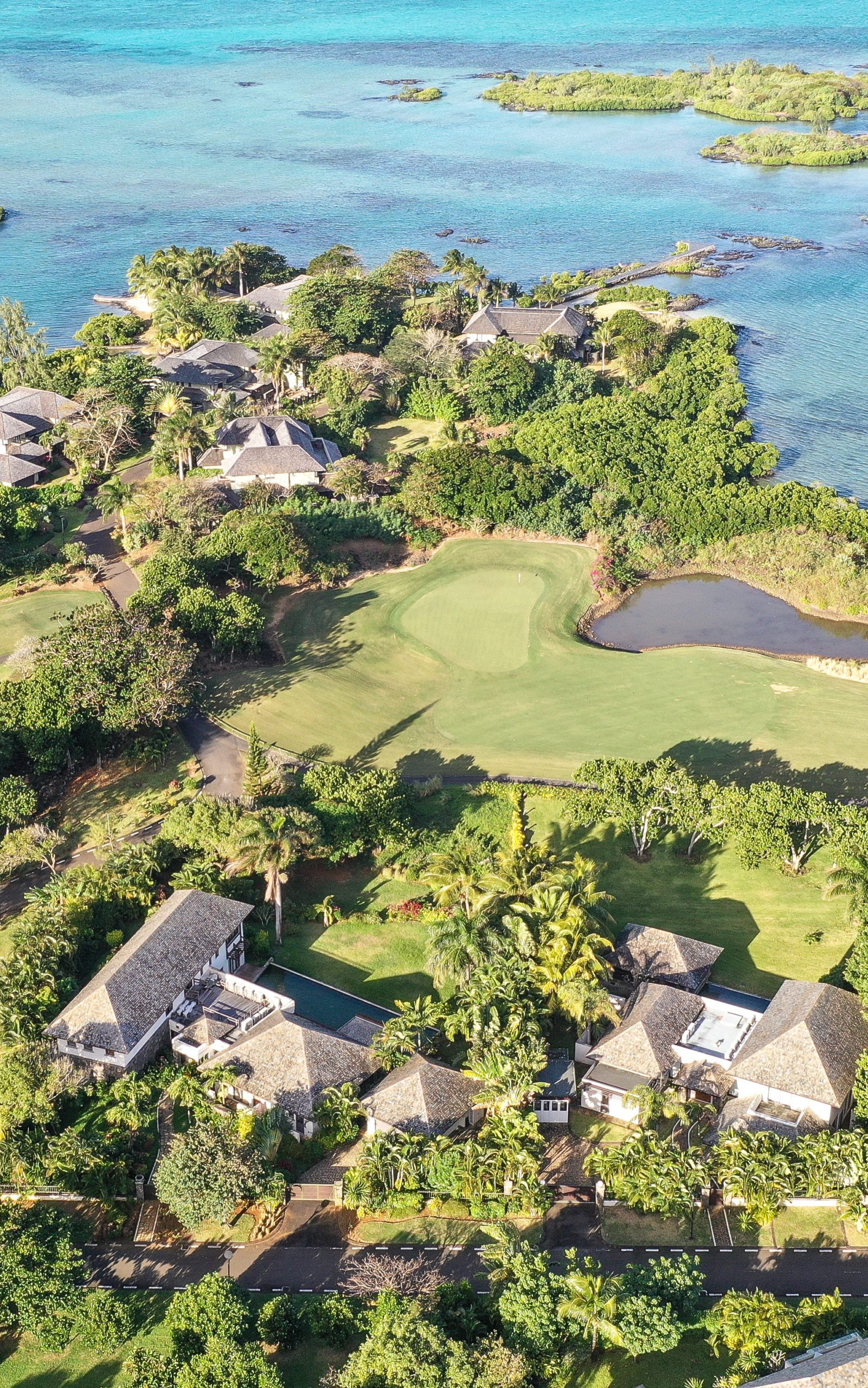
Why choose Anahita to live and invest
Located in the East of Mauritius, Anahita is one of the pioneer residential programme offering a wide portfolio of high-end properties to both Mauritians and foreigners. Developed under the Integrated Resort Scheme (now known as PDS), the scheme’s guidelines implied high standards of facilities, services and constructions to create a premium lifestyle.
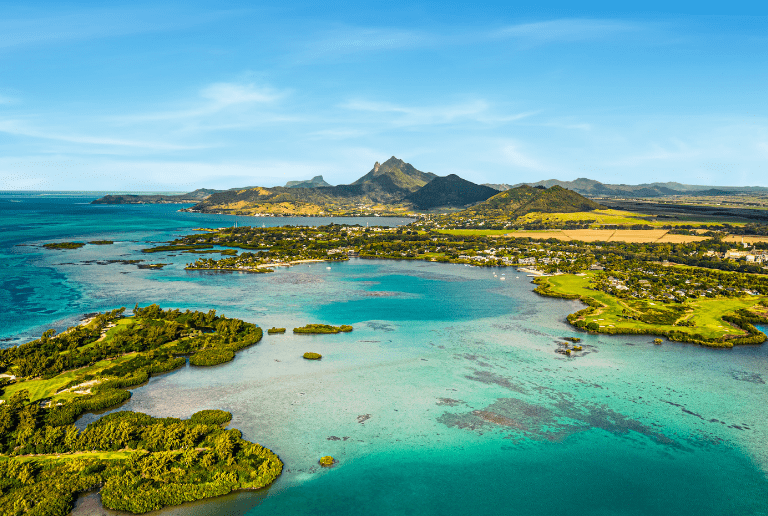
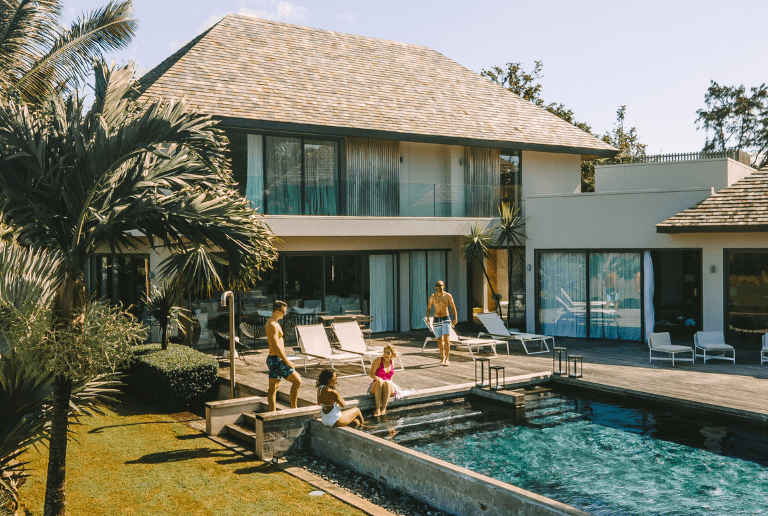
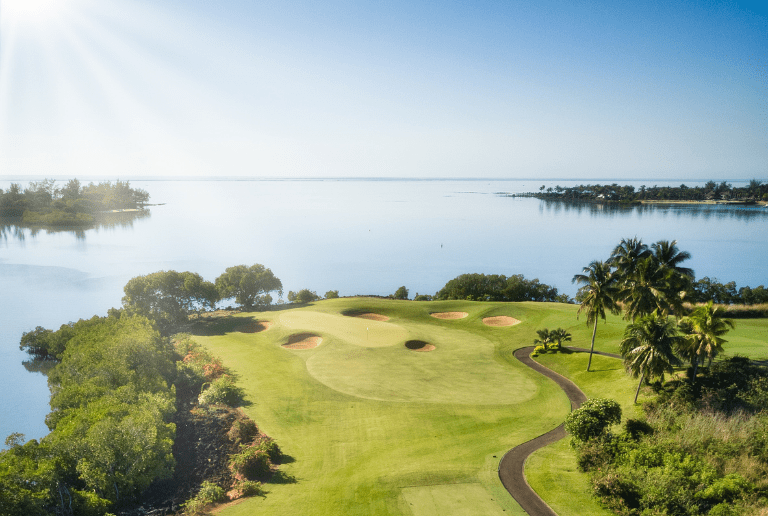
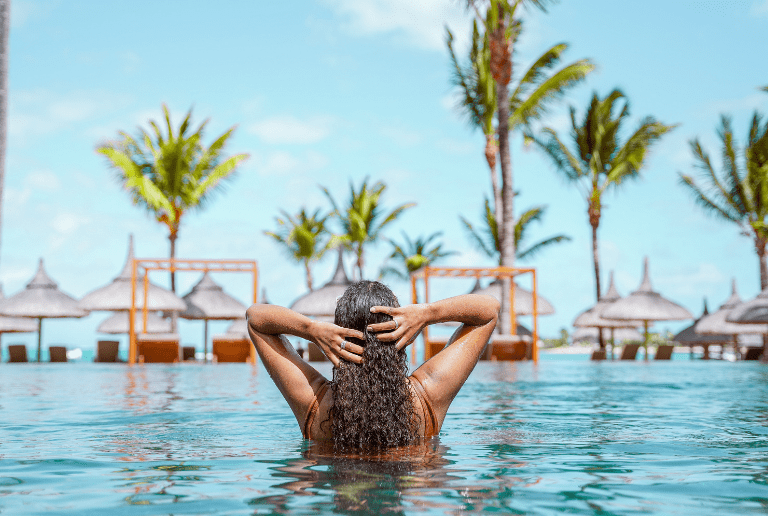
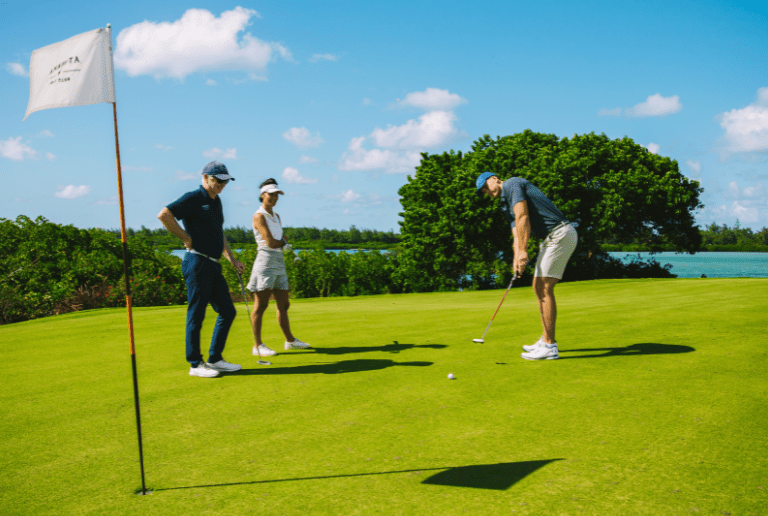
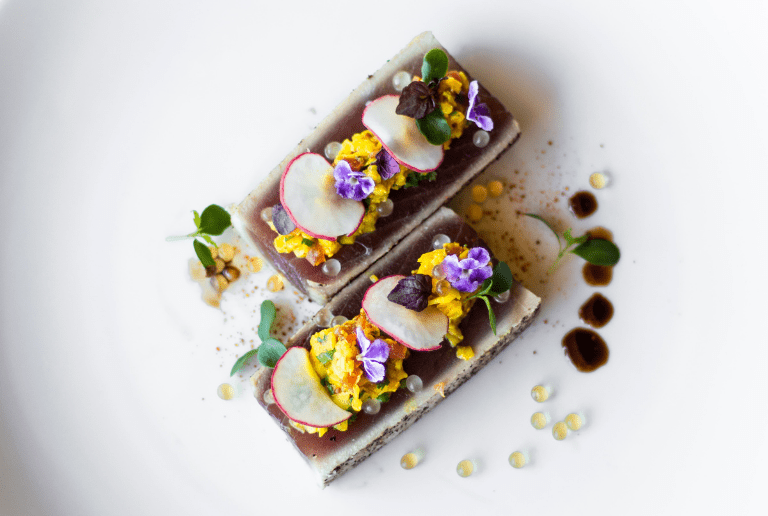
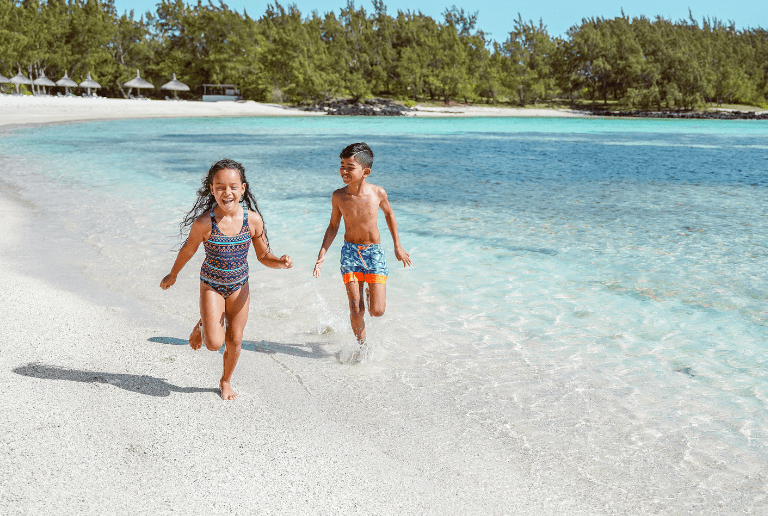

Facing the island’s largest lagoon and spreading across 213 hectares, the residential estate hence encompasses a range of properties for sale on a golf course as well as fine experiences: spa, an exclusive beach on the Île aux Cerfs, fine dining or in-villas chefs, a signature golf course, a plethora of activities and other facilities
Jewel of the Indian ocean, Mauritius has certainly more to offer than its postcard features. The country’s stable and dynamic environment, the fiscal advantages for individuals and businesses as well as interesting investment opportunities, especially in real estate, provide great reasons to call Mauritius your new home or to consider investing for frequent visits to the island.
For more information about Anahita’s investment opportunities or to find your dream home amid a 5* residential estate, contact our sales team.
T: (+230) 402 22 46| M: info@anahitaproperty.com
Cette publication est aussi disponible en :
 Français
Français
